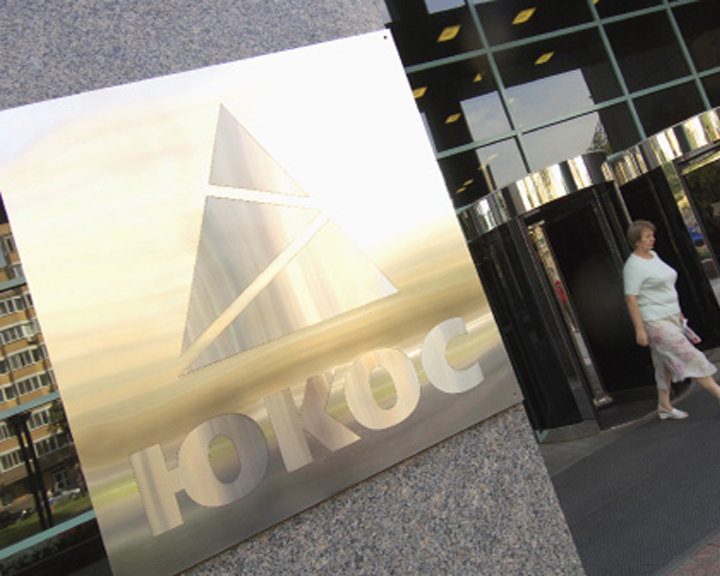NEW YORK, August 8 (RAPSI) - A federal district court in New York satisfied Tuesday a request by Yukos Capital SARL (Yukos Capital) for summary judgment in its efforts to seek enforcement of an arbitration award it had earlier won in the International Court of Arbitration of the International Chamber of Commerce (ICC) against Russia’s OAO Samaraneftegaz, according to court documents obtained by RAPSI.
Yukos Capital is a subsidiary of Yukos Oil Company (Yukos Oil), the latter of which has gone bankrupt. Samaraneftegaz was a wholly-owned Yukos Oil subsidiary from 2001 until 2007. It is now an OJSC Oil Company Rosneft subsidiary.
The companies’ original dispute arose from a July 2004 loan agreement. According to the US court documents, Yukos Capital had lent Samaraneftegaz 2,415,890,000 rubles. The loan agreement had stipulated that all relevant disputes should be dealt with by the ICC. According to Tuesday’s decision, “It is undisputed that Samaraneftegaz failed to make any payments on the Loans, including interest when due and principal upon notice of default.”
Yukos Capital initiated ICC arbitration proceedings against Samaraneftegaz to resolve the loan dispute in January 2006. Samaraneftegaz remained silent upon receipt of notices from the ICC until April 2006, when its management company ZAO Yukos Exploration and Production (Yukos Exploration) responded on its behalf, stating that based on the disputed validity of the arbitration provisions, it would not bear the costs of arbitration. From that point, the ICC directed most of its communications on the case to Yukos Exploration, at its legal address.
The exception to this trend was a revised Terms of Reference that was – according to the opinion – sent to Samaraneftegaz’ corporate address in October 2006. The letter, which was sent by registered mail and included a return receipt, purportedly included details of the arbitration proceedings up to that date. Samaraneftegaz did not sign the new Terms of Reference.
Eventually, the dispute fell in the favor of Yukos Capital. According to the opinion, “In its August 15, 2007 award, the tribunal ordered Samaraneftegaz to pay Yukos Capital the outstanding RUR 2,415,980,000.00 due under the Loans, contractual interest in the amount of RUR 664,821,971.00, interest at a rate of 9% on the award until payment, $ 435,000 USD for arbitration fees and costs, and $284,474.54 USD for Yukos Capital’s legal costs and expenses.”
When Yukos Capital sought enforcement of the award in Russia in 2010, a Samara commercial court refused, holding that Samaraneftegaz had not been notified of the progress of the arbitration proceedings after March 2006. Furthermore, the court found that enforcement of the award would violated Russian public policy, according to Tuesday’s decision.
Meanwhile, Samaraneftegaz’s sole shareholder Neft-Aktiv had sued in 2007 to invalidate the original loan agreement – arguing that the loans had in fact been, as quoted in Tuesday’s decision, “sham transaction[s] intended to conceal the actual relations between the parties in the form of an illegal transfer [by] OJSC Samaraneftegaz of its funds in favor of [Yukos Capital] and subsequent return of the abovementioned amounts to OJSC Samaraneftegaz in the form of a loan.”
The case was put on hold in light of the pending criminal proceedings against former Yukos Oil top managers Mikhail Khodorkovsky and Platon Lebedev. In 2012, however, a Samara court invalidated the loans, finding that they had been, as quoted in Tuesday’s decision, “financed from funds taken away earlier from OJSC Samaraneftegaz in the course of implementation of transfer pricing mechanisms.” Yukos Capital failed in its later efforts to appeal the judgment.
Both parties had moved for summary judgment in connection with the ICC decision.
The US federal court started its analysis of the situation by stating that: “A court with jurisdiction ‘shall’ confirm an award falling under the Convention on the Recognition and Enforcement of Foreign Arbitral Awards (the “Convention”) unless there are statutory grounds for refusal of recognition.”
The grounds asserted by Samaraneftegaz were that it had not been given proper notice of important stages of the arbitration proceedings, and that the enforcement of the award would be contrary to US public policy by condoning alleged tax evasion.
In considering the first point, the US court focused on Samaraneftegaz not having disputed receipt of five notices from the ICC between January and March 2006, and not having contested receipt of the October 2006 letter containing the revised Terms of Reference.
Considering these points, the US Court asserted: “If, as Samaraneftegaz contends, it did not receive notice of any developments in the arbitration proceeding after March 13, 2006, at the very least, the October 24, 2006 letter would have alerted it to the fact that the arbitration was proceeding in its absence, and Samaraneftegaz could have informed the ICC that it was not receiving communications or otherwise availed itself of the opportunity to participate.5 These facts support a conclusion that Samaraneftegaz’s absence was due to a decision not to appear, rather than lack of notice.”
Accordingly, the court held that Samaraneftegaz had fallen short of the burden of demonstrating that the ICC proceedings had violated US due process standards.
With regard to the public policy argument, the US court noted that its review of an arbitral award would be limited in scope, and would not cover the validity of the loan agreements underlying the award. That having been established, the court found that Samaraneftegaz had failed to advance a well-defined and dominant public policy in support of its argument.
Accordingly, the US Court concluded, “For the reasons discussed above, the Court GRANTS Yukos Capital’s motion for summary judgment and DENIES Saramaneftegaz’s motion for summary judgment.”



